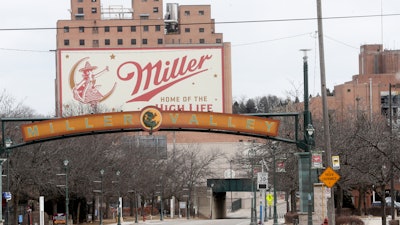
MILWAUKEE (AP) — A man who killed five co-workers at a Wisconsin brewery before shooting himself was likely motivated by “mental health issues” rather than racism, Milwaukee's police chief said.
Chief Alfonso Morales told WTMJ radio on Wednesday that he doesn't believe racial issues led Anthony Ferrill, who was black, to carry out the Feb. 26 attack at the sprawling Molson Coors brewery complex. Four of the slain co-workers were white and the fifth was Latino. Morales' interview expanded on a police statement that warned the public not to assume that Ferrill had been racially harassed, even though the company confirmed Wednesday that a noose had been placed on Ferrill's locker five years ago.
“I’m going to go out on a limb on this one and say that I believe this was more mental health issues,” Morales told WTMJ. “And as we develop that based on the information we’re getting that’s what’s leading us.”
Morales said Ferrill, a 51-year-old electrician, was friendly with at least some of the victims.
“It isn’t a racial piece when one of the people that you killed was a person that you picked up because they had car troubles to get to work,” Morales said. “Or, somebody brings you lunch because you helped them out fixing their car. These are not people that you have that problem. Now could there have been (an) argument somewhere within a day or two? Yes, but we’re trying to identify that piece, and if there were an argument, that would not send it or make it a racial issue.”
Morales said Ferrill left no note and that detectives have been trying to figure out his possible motive. He said the investigation was likely to take several more weeks.
The Ferrill family's attorney, Craig Mastantuono, declined to discuss the noose incident or a possible motive.
Local media have reported over several days on speculation that the attack was racially motivated, interviewing current and former Molson Coors employees who anonymously complained about longstanding discrimination against black workers. The company said Ferrill wasn't working on the day in 2015 that the noose was placed on his locker, but that he was told about it.
Molson Coors spokesman Adam Collins said the company investigated but there was no security surveillance video showing who placed the noose on the locker. The company explained to employees that such actions weren't acceptable and shared channels for filing discrimination or harassment complaints. He said there's no evidence to suggest any of the shooting victims were involved in the noose incident.
Morales, who is Latino, acknowledged Milwaukee's historic issues of segregation in the interview with WTMJ, but he then set them aside.
“We can talk about racial incidents that have occurred through city of Milwaukee throughout the years with many individuals of color, I can express some of those myself,” he said. “That’s not necessarily the answer” for why Ferrill carried out the attack, he said.






















